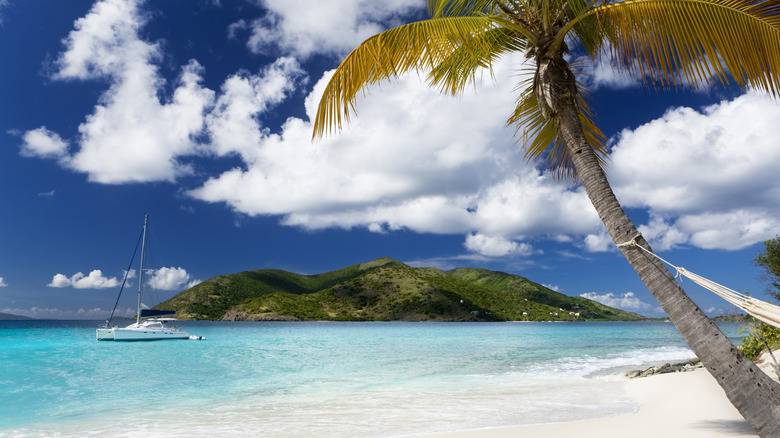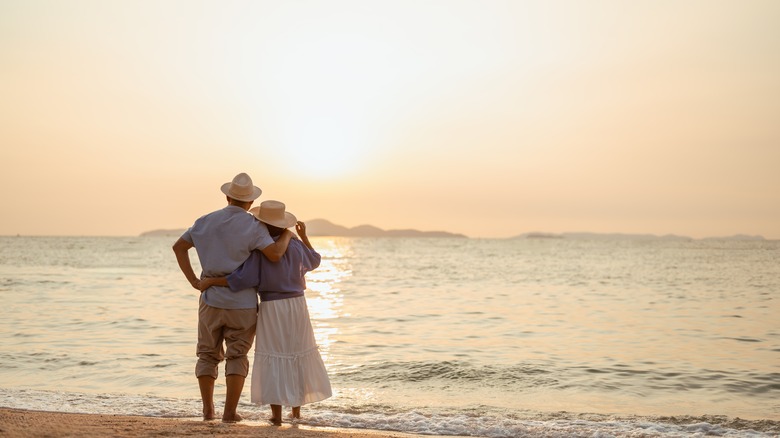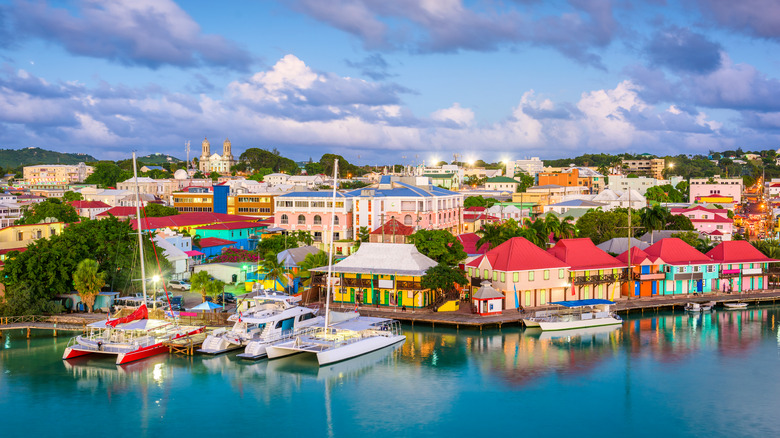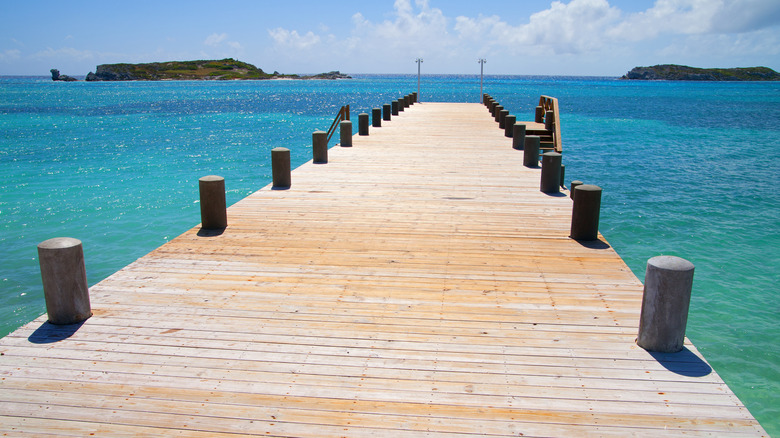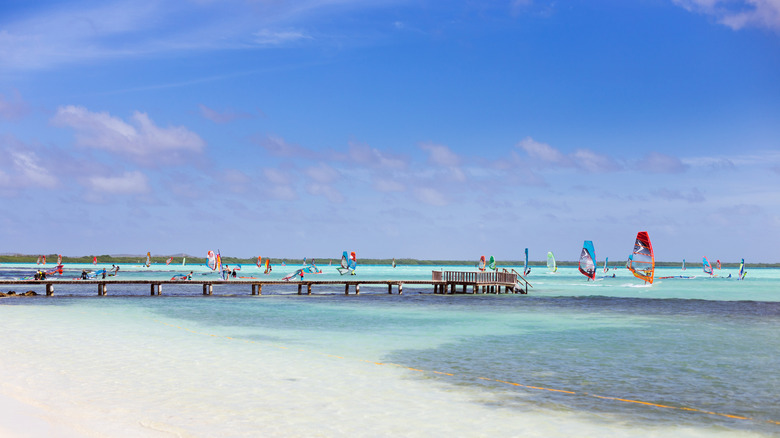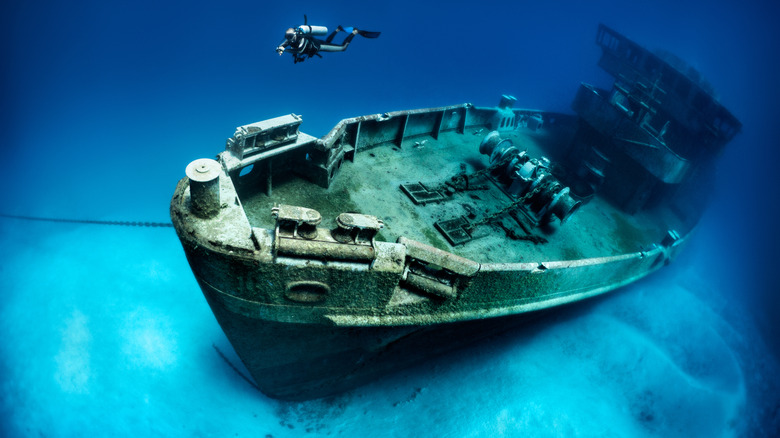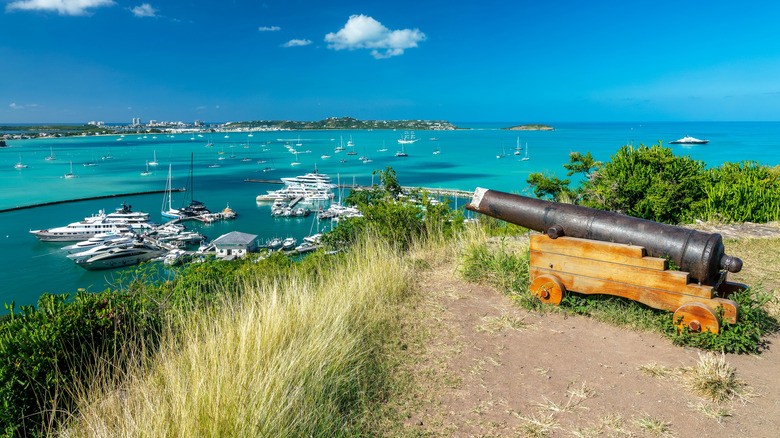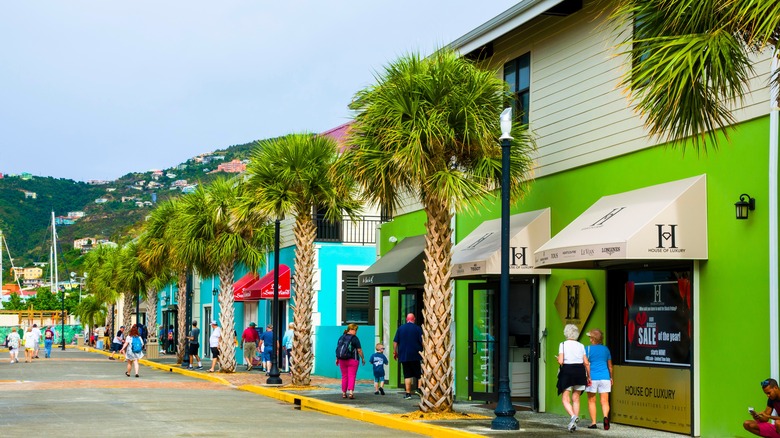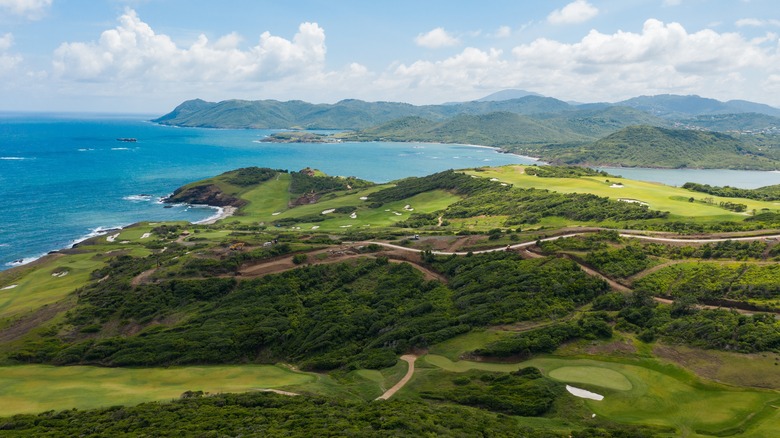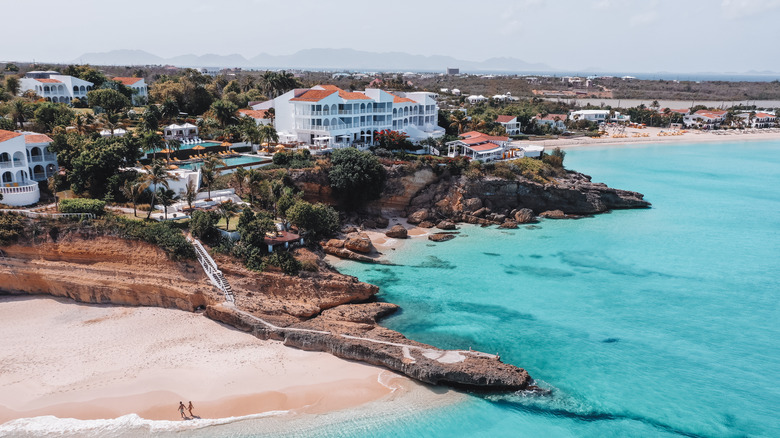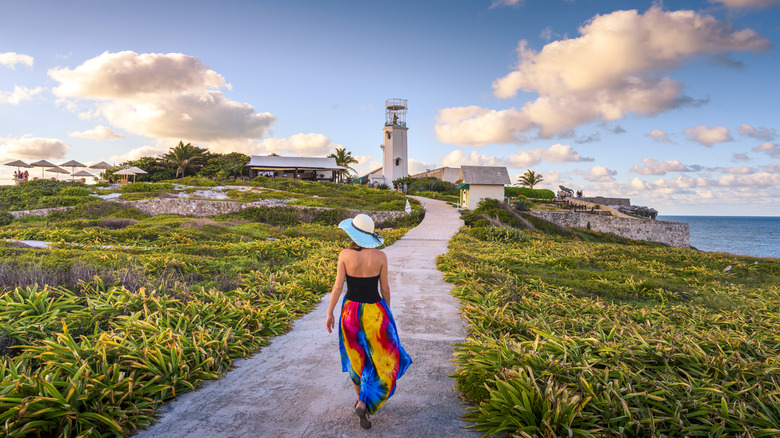The Best Caribbean Islands For Retirement, According To Research
Retiring elsewhere has become more and more popular over the years. Whether for affordability reasons or otherwise, there is something truly intriguing about spending your retirement in another country. If you have your sights set on somewhere warm where you can enjoy a bit of island living, the Caribbean should definitely be atop your list.
Not only is retiring to the Caribbean a bonus due to the amenable weather and relaxed lifestyle, but it is also generally more cost-effective than just simply retiring where you are and attempting to maintain your current way of life. From an overall enhanced standard of living and better access to healthcare to possible tax exemptions and more, there are many reasons to make an island in the Caribbean your forever home. Regardless of whether you are ready to retire, nearing retirement age, or just going over your future options, there are quite a few island paradises willing to accommodate you. If you've ever dreamt of retiring to a tropical island, these are the best options for you.
Factors to consider first
Before you can move to your new island residence, you need to consider a few things. Of course, income, expenses, taxes, and your prospective area's cost of living should be top priorities, but you also need to ask yourself other crucial questions. Are you looking to permanently or seasonally retire to a new location? Are you looking to buy or rent? And speaking of housing, what, if any, legal restrictions could affect potential property ownership?
Additionally, the climate, accessibility to transportation, and nearby amenities should not be overlooked when deciding whether to retire in the Caribbean. For instance, if you have been dreaming of beach living, are you prepared to deal with a few months of extreme weather and the possibility of natural disasters? Can you easily walk to town, or does the island have decent public transportation? Moreover, if you want to spend most of your time golfing or diving, is that an option in your potential Caribbean paradise?
While you are contemplating all these questions, you should take some time to research local cultures, customs, and languages. The quality of medical care available is also another factor to consider, especially if you know you will likely need any specialized care in the future. Unfortunately, choosing where to retire isn't simply a case of rocking up in paradise.
Antigua and Barbuda
One of the best Caribbean islands for retirement is Antigua and Barbuda, a stunning tropical paradise with lovely weather practically all year round. With more than 300 pristine pink-sand beaches, shimmering turquoise waters, ample outdoor fun, homes for every budget, and notable tax-free living, this Caribbean island is a fantastic option. However, the possible perks do not stop there, as this destination also has more affordable costs of living when compared to other isles in the Caribbean. If you happen to be on a fixed income, Antigua and Barbuda is more than inviting.
Retirees will also find world-class hospitals (such as The Mount St. John's Medical Centre) and easy access to medical care for seniors. Plus, moving here does not come with a lot of red tape, and there is a hassle-free path to citizenship — the citizenship by investment program, which can be accomplished via a one-time donation or a real estate investment (of approximately $200,000). This Caribbean island also has both public and private transportation services, a low crime rate, a fairly stable political climate, a rich culture, a fascinating history, and English as the official language. And, with many diverse activities available to pass the time, like sailing, kayaking, hiking, snorkeling, and cultural events such as the Antigua Carnival, retirees can do so much more than just lounge on breathtaking beaches or marvel at splendid shorelines here.
South Caicos
Part of the idyllic paradise that is the Turks and Caicos Islands, South Caicos offers a peaceful retreat with picturesque surroundings, a warm climate, and crystal-clear waters. Here, you can opt for temporary residency or permanent residence investor programs (which require a home purchase of about $300,000). The cost of living is slightly higher compared to many other spots in the region due to the need to import most goods, but many retirees still manage to live comfortably and opt for an eco-friendly retirement at a real estate development or in one of the various villas available on the island.
Since South Caicos is so relaxed and secluded, you can easily escape the crowds and get a taste of small-town life (the island has a population of around 1,200). And with so much unspoiled beauty, South Caicos is ideal for nature lovers. This fishing hotspot has nature sanctuaries, tranquil beaches, wild horses, roaming donkeys, flamboyances of flamingos, and ample marine life. South Caicos residents often enjoy all kinds of watersports — especially scuba diving — and find ample time for serenity in the gorgeous villages dotted around the island.
In terms of transportation, there are no public networks available. People generally walk, bike, and rent cars to get around. Small passenger ferries are also utilized to explore other islands with larger urban centers, shopping districts, restaurants, and access to more medical services.
Bonaire
If you are looking for a Caribbean island where you do not have to worry about hurricane season, you should definitely check out Bonaire. A special municipality of the Netherlands, underrated Bonaire sits outside the Caribbean hurricane belt, making it safe from severe tropical storms and high winds. Spending your retirement on Bonaire means you can enjoy a lower cost of living and a laid-back lifestyle. A bonus here is that since Bonaire is considered a part of the Netherlands, retirees also have access to free healthcare and can manage on as little as $24,000 a year. You must become a permanent resident to qualify for such perks, and there are several ways to gain residency. The Retired Person or Person of Independent Means permits ensure retirees can live out their days on one of the Caribbean's safest islands with the promise of first-rate healthcare.
Bonaire is a medium-sized island brimming with community, natural beauty, national parks, a thriving farming area, diverse outdoor activities such as hiking, windsurfing, birdwatching, and senior-approved excursions, and a thrilling mix of cultures (Dutch, Latin American, and Caribbean). With ample real estate available and no restrictions on property ownership for non-residents, retirees will find just about everything they need and want in Bonaire. Finally, Bonaire has a public transit system but it is somewhat lacking, so the island is packed with pedestrians, scooters, bikes, and ride-shares.
The Bahamas
The Bahamas are a gorgeous chain of islands shimmering with tropical bliss. English is widely spoken in the Bahamas, and life here is an exciting mix of fun in the sun and leisure activities. For retirees, the tax benefits and pleasant climate tend to outweigh the pricey living costs (the Bahamas has a higher cost of living than even the U.S.), and residency can be gained with a home purchase of around $500,000. Alternatively, you can buy property and maintain an annual Homeowner's Card if your housing budget is smaller than that gargantuan sum.
Known for its gorgeous shoreline and sparkling waters, the Bahamas has several tremendous locations for retirees to call home. For instance, with places like Paradise Island (packed with entertainment and real estate developments), Albany (golfing and gated communities), Nassau (city living, history, and renowned medical facilities), and the Eleuthera Islands (secluded relaxation and pink-sand beaches) to choose from, retirees can tailor their experience according to their interests. The Bahamas continues to be a safe place to live with access to basic healthcare, but it is worth noting that international insurance is recommended for more comprehensive care. When it comes to getting around the Bahamas, many people take local buses or jitneys to make their way into town. Ferries and water taxis also allow for seamless travel between the various enclaves, making retiring to the Bahamas an island lover's dream come true.
Cayman Islands
Comprised of three gorgeous isles, the Cayman Islands is a tropical haven worth considering for an idyllic retirement. Retirees can opt for a social and active existence or a little peace and quiet on the less busy isle of Cayman Brac. With no taxes on real estate, capital gains, or income, the Cayman Islands is a financially sound option for those with money in the bank. And with its stable economy, low crime rate, high standard of living, and lavish beachfront properties, the Cayman Islands offer a truly comfortable retirement.
Other perks of retiring here include access to diverse social clubs, year-round sunshine, a plethora of fantastic things to do, excellent opportunities for deep sea diving and water recreation, phenomenal shopping, and a rich cultural scene. Taxis are the preferred method of transportation in Grand Cayman, while bikes, walking, and car rentals are used to navigate Cayman Brac and Little Cayman. Traveling between all three enclaves is typically done via private boats.
The Cayman Islands are ideal for wealthy retirees who qualify for residency programs like the Certificate of Permanent Residence or the Certificate of Direct Investment (which requires an annual foreign-earned income of $150,000). If you also do not mind spending for comprehensive healthcare, you have come to the right place; the Cayman Islands are known for first-rate medical services.
Sint Maarten
With remarkably surreal seaside scenery that includes pristine white-sand beaches, forested mountains, and sparkling lagoons, this multicultural mecca has amenable temperatures all year round (an average high in January of 83 degrees Fahrenheit) and is the place to be to make your retirement dreams a reality. Considered one of the lower-cost Caribbean islands for retirees, Sint Maarten is all about financial benefits (tax incentives, no property tax, tax-free imports, etc.) and has retirement residency programs that are favorable to seniors. This Caribbean island also has European vibes (it is still a constituent country of the Kingdom of the Netherlands), a modern infrastructure, budget-friendly housing, excellent medical facilities, a flourishing economy, celebrated cuisine, and a sizable expat community.
Moreover, Sint Maarten is not too far from the U.S., making travel between the two destinations relatively straightforward. Sint Maarten is a smaller island and getting around via taxi is not too difficult, another aspect that makes life here so relaxing. So, whether you want to spend your time sailing, horseback riding, shopping, exploring historical sites, or just taking in the view, it is all out there in front of you.
Though the cost of living here is still somewhat high compared to Europe, Canada, or the U.S., and you need your own health insurance and a minimum of $255,000 in savings to qualify for temporary residency, you cannot deny that paradise is calling. Sint Maarten has some of the most incredible beaches, spectacular restaurants, and thrilling festivals in the region. Plus, there is always the daily excitement of airplanes screaming over a local beach. You can't beat that, right?
British Virgin Islands
Retiring in the British Virgin Islands (BVI) requires a sizable net worth or an established business presence. However, if you are looking for some warmth for the winter months, then you can opt for a temporary residency and enjoy your retired years seasonally (provided you have an annual income starting at $36,000). Thanks to its many inhabitable enclaves, you can easily find housing, though you must obtain a Non-Belonger Landholding License before renting or purchasing property here. It is also worth noting that there are also annual real estate taxes in the British Virgin Islands. However, there are no taxes on inheritance, income, capital gains, or wealth.
As one of the most luxurious yacht capitals in the world, BVI's cost of living can become pricey quickly, particularly on popular islands like Anegada, Jost Van Dyke, Virgin Gorda, and Tortola. But if you plan on enjoying yourself to the fullest by sailing, surfing, shopping, island hopping, sipping on cocktails as you soak in natural jacuzzis, lounging on breathtaking beaches, and more, BVI is a marvelous choice. When it comes to healthcare, retirees have access to quality services — both private and public, which includes Medevac transport for more specialized treatment. With non-medical inter-island flights, land and water taxis, and ferries, you can easily get to wherever you are going and experience BVI's unique culture, cuisine, and upscale lifestyle.
Saint Lucia
For retirees looking for distinguished golf courses, island vibes, and lush surroundings (including a tropical rain forest, the Piton Mountains, a drive-in volcano, and some of the region's most vibrant coral reefs), Saint Lucia is nothing short of amazing. Here, you can opt for Citizenship by Investment (CBI) at a cost of $240,000 and become a part of a diverse community of expats, retirees, and friendly locals. Deemed one of the least expensive islands for retirement, you can live well for around $1,000 to $1,500 a month. An Alien Landholding License is required to purchase or rent property in Saint Lucia, but with a healthy mix of affordable and high-end property, housing is not a problem here.
That said, there are residential real estate taxes (as well as personal income taxes) to factor into your budget. But with amenable weather, recreational activities galore, natural wonders, fantastic medical care, a bustling marketplace, several transportation options (mini-buses, taxis, rentals, ferries, and helicopters), and a truly welcoming feel, Saint Lucia is a stunning option for retirement. It is a famously safe island with a close-knit community, rich history, delicious cuisine, and multiple annual cultural events like the Saint Lucia Jazz and Art Festival. And when you learn that this island has a lower cost of living than both the U.S. and Europe, it is clear that Saint Lucia is just too good to resist.
Anguilla
Anguilla is a genuine diamond in the rough, with beautiful coastlines, the famous Shoal Bay, premier tennis and sports facilities, and plenty more. The British Overseas Territory has warm and fairly dry weather, unspoiled beaches, high-end resorts, a variety of recreational activities, and upscale beachfront restaurants on its Caribbean sands. With favorable tax benefits (similar to other Caribbean islands with a higher cost of living), an easy path to British citizenship, and reasonable residency programs in place, Anguilla might be the relaxed lifestyle you did not know you needed.
If you are looking for the quickest way to get permanent residency in Anguilla, a real estate purchase of around $500,000 or an investment of $750,000 is the ticket. There are minimal real estate taxes here, but overall, Anguilla is another island destination that can help you save regarding income, capital gains, and VAT. Furthermore, standard housing and resort residences (ranging from modest to exclusive) are available on the island, giving retirees plenty of options to determine what scenario works with their budget. Due to the small size of this enclave, public transportation consists mainly of taxis and ferries, and there is a limited number of medical facilities in Anguilla. Despite this drawback, Anguilla is a lovely choice for any retiree looking to leisurely kick back and live the good life.
Methodology
In order to pinpoint the best Caribbean islands for retirement, we consulted experienced expats, top retirement planning sites, and financial experts. We also considered important retirement factors, including overall budgets, available housing, cost of living, visa requirements, and senior-friendly citizenship programs. Other practical items like the weather, political climate, safety, access to the community, and social activities played an essential role in compiling this guide. Ultimately, choosing where to retire should align with your specific goals, wants, and needs. If you can afford it, there are plenty of excellent options in the Caribbean. After all, retiring to a tropical island is the dream, right?
